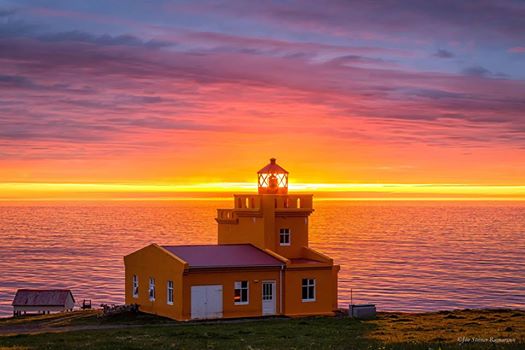13.8.2009 | 19:23
Icelanders are angry but will make sacrifices
Grein Jóhönnu.
By Jóhanna Sigurðardóttir
Published: August 13 2009 18:53 | Last updated: August 13 2009 18:53
In its efforts to conclude negotiations over compensation for foreign savers in failed banks, Iceland has been accused of a tendency to imagine a British or Dutch conspiracy behind any bad news.
Iceland has no such tendency. It is battling the effects of severe banking and currency crises and a recession that is affecting our part of the world as much as any other. My government, which took over in February and gained a majority in general elections in May, has to deal with the aftermath of the fall of nearly all of Iceland’s privatised banking sector.
We plan a 30 per cent contraction in government finances over the next three years, with extensive cuts to infrastructure spending and wages – a heavy burden for our population of 300,000. We have, in co-operation with the International Monetary Fund, formulated an economic strategy that is being fully adhered to. Indeed, we have already reached agreements on a recapitalisation of the banking sector, a stability pact with social partners and a strategy for lifting current account restrictions. In that vein, the authorities have sought an agreement with the foreign creditors of the failed banks with the aim of them taking control of two of the reborn banks. We have also finalised loan agreements with several countries as part of the IMF programme and Iceland’s parliament has authorised it to seek membership of the European Union.
Icelanders, who do not feel responsible for the global banking crisis, are willing to make sacrifices to secure normal relations and trade with the world. But they are angry at having to take on the burden of compensation for the Icesave savings accounts of Landsbanki – a failed, privately owned, commercial bank, which attracted hundreds of thousands of UK and Dutch savers with high interest rates. The amount to be shouldered by Iceland is huge – about 50 per cent of our gross domestic product. Assets against this debt will substantially lower the net amount, but there is much uncertainty about the valuations and forecasts underpinning such calculations.
Last October, when Iceland was in deep crisis, UK authorities froze the assets of Landsbanki, and placed the bank (and for a while Iceland’s government) alongside terrorist organisations on the official UK Treasury list of entities subject to asset freezing. Kaupthing Bank, which had just been granted a government loan amounting to 5 per cent of GDP, then collapsed after its subsidiary in London was seized by the Financial Services Authority. Despite a critical report in April by the House of Commons Treasury Select Committee, no satisfactory explanations have been given for the UK’s actions.
The EU deposit insurance directive that places this burden upon us is seen by some as aimed at the failure of individual banks rather than a systemic collapse, as was the case in Iceland. A strong argument has been made for Iceland being the coincidental victim of defects in this directive, which have been ignored.
Icelanders are striving to fulfil their obligations but cannot, and should not, ignore the lessons to be learnt from this crisis regarding potential flaws in banking regulation and deposit insurance schemes affecting the EU and European Economic Area.
The FT has reported how the Dutch opposed the IMF lending to Iceland in order to enforce their demands on Icesave, claiming the UK and Germany as allies. The perception is that Treasury officials in the UK and the Netherlands used their bargaining power against a much weaker party when the Icesave deal, now being debated in the Icelandic parliament, was struck.
This has made it difficult for Iceland’s government to convince the parliament and Icelanders that an agreement on Icesave accounts with the UK and the Netherlands is un-avoidable. Parliament is looking into ways to attach conditions to the state guarantee to ensure the economic survival and sovereignty of Iceland. Here we need to stress the mutual interest of all three nations in Iceland’s capacity to fulfil its debt obligation.
Iceland will not be deterred from resolving issues that stand in the way of economic reconstruction at home and confidence-building abroad. It is to be hoped that the people of large countries such as the UK and the Netherlands are aware of the lasting impact their governments can have on small countries such as ours at a time of great distress.
The writer is prime minister of Iceland
Flokkur: Stjórnmál og samfélag | Breytt s.d. kl. 19:41 | Facebook
Nýjustu færslur
- 21.10.2020 HEIMILDIR UM ELDGOS Á REYKJANESSKAGA
- 12.9.2019 Ugglaust koma fleiri þættir til sem valda þessum erfiðleikum ...
- 1.3.2018 Svæsnustu spillingarbælin.
- 19.8.2016 Ég missti barnabarnið hana Karen Björgu fyrir þrem mánuðum.
- 4.3.2014 Menntakerfið okkar er úrelt og hentar alls ekki öllum.
- 21.2.2014 Vigdís Hauksdóttir var höfð að háði og spotti út af Evrópumál...
Eldri færslur
2020
2019
2018
2016
2014
2013
2012
2011
2010
2009
2008
2007
Færsluflokkar
- Bloggar
- Bækur
- Dægurmál
- Enski boltinn
- Evrópumál
- Ferðalög
- Fjármál
- Fjölmiðlar
- Íþróttir
- Kjaramál
- Kvikmyndir
- Lífstíll
- Ljóð
- Mannréttindi
- Matur og drykkur
- Menning og listir
- Menntun og skóli
- Samgöngur
- Sjónvarp
- Spaugilegt
- Spil og leikir
- Stjórnmál og samfélag
- Sveitarstjórnarkosningar
- Tónlist
- Trúmál
- Trúmál og siðferði
- Tölvur og tækni
- Umhverfismál
- Utanríkismál/alþjóðamál
- Vefurinn
- Viðskipti og fjármál
- Vinir og fjölskylda
- Vísindi og fræði
Heimsóknir
Flettingar
- Í dag (7.10.): 0
- Sl. sólarhring: 1
- Sl. viku: 21
- Frá upphafi: 0
Annað
- Innlit í dag: 0
- Innlit sl. viku: 20
- Gestir í dag: 0
- IP-tölur í dag: 0
Uppfært á 3 mín. fresti.
Skýringar
Vinir og vandamenn
Tenglar á síður vina og vandamanna
-
Rannveig Vigfúsdóttir
Rannveig Gamla. -
Við erum Ljónabræður, afabörnin
Bjarki Leó -
Við erum Ljónabræður,afabörnin
Benjamín Leó





 agbjarn
agbjarn
 emilhannes
emilhannes
 vulkan
vulkan
 postdoc
postdoc
 fornleifur
fornleifur
 einarbb
einarbb
 tilveran-i-esb
tilveran-i-esb
 sjonsson
sjonsson
 prakkarinn
prakkarinn
 islandsfengur
islandsfengur
 joiragnars
joiragnars
 heklasol
heklasol
 axelaxelsson
axelaxelsson
 hlf
hlf
 valdimarjohannesson
valdimarjohannesson
 georg
georg
 smalinn
smalinn
 russi
russi
 thil
thil
 kuldaboli
kuldaboli
 hallurmagg
hallurmagg
 elvira
elvira
 vg
vg
Bæta við athugasemd [Innskráning]
Ekki er lengur hægt að skrifa athugasemdir við færsluna, þar sem tímamörk á athugasemdir eru liðin.